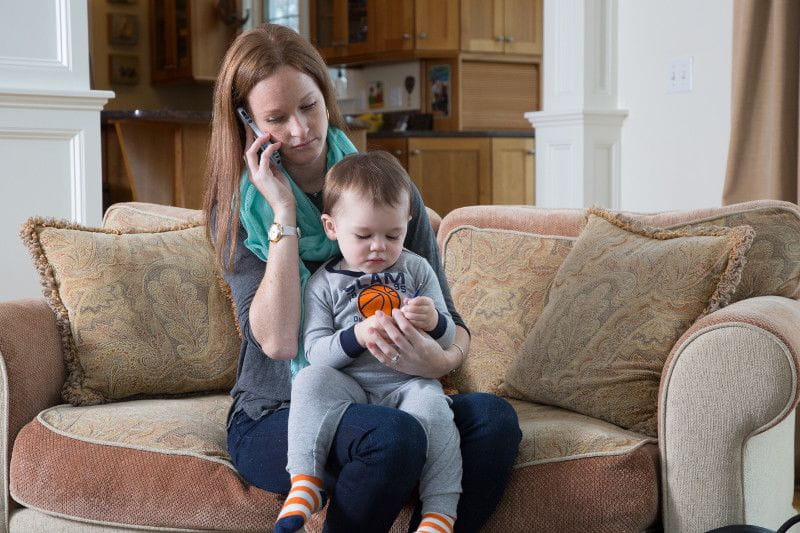Unfortunately, a lot of workplaces are leaving it up to the parents. That leads to well-intentioned and exhaustive instruction manuals like this on Harvard Business Review detailing nine steps for handling work when your child is sick. The upshot is people spinning their wheels trying to figure out how to retrofit their workday around chaos.
But wouldn't it be better if there was a plan? What if when a child couldn't go to school, parents knew they could just decide - without penalty - to stay home and so get work done? What if they had alternative arrangements they could call in when they had to be at the office? Wouldn't that make more sense?
There's good evidence to show the answer is...yes. And more employers are catching on.
What a Good Child Care Strategy Looks Like
Consider back-up care. Last year, providing it to employees had this effect for our clients:Collective number of clients' days saved: 614,769
Average number of days per employee: 9.5
It's not just the workday saved: it's the time parents spend trying to figure out how to save the workday. Working mothers and fathers who have to personally invent an elaborate child care strategy for such emergencies lose valuable time just trying to figure it out.What's At Stake When You Don't Have a Strategy
And individual days aren't the only things at stake. The absence of clearly stated family policies leave parents guessing - and many of them are guessing the message is, don't talk about children. That leads to costly decisions - such as using vacation time for a child's doctor visit. Parents in our 2014 Modern Family Index (MFI) told us they were doing just that, primarily because they thought being honest would get them fired. The long-term strain of all work and no vacation (and lying about it) no doubt plays into the fact that 98% of parents also told our MFI they're burning out.Which brings us back to the question, what if it didn't have to be that hard? What if organizations recognized that family emergencies were a perfectly ordinary fact of life...and treated them that way? Then, instead of wheel spinning and burnout, you get messages like this: "Using in-house today to help until my wife gets home from Houston," one employee texted us the morning he used back-up care during a child care surprise. "Saving me!"
The upshot is it's a whole lot harder to hide a responsibility than to openly deal with it. It's the difference between a nine-step process to figure out what the boss is thinking. Or simply saying, "I'll be working at home/calling back-up care today" and getting to work.





